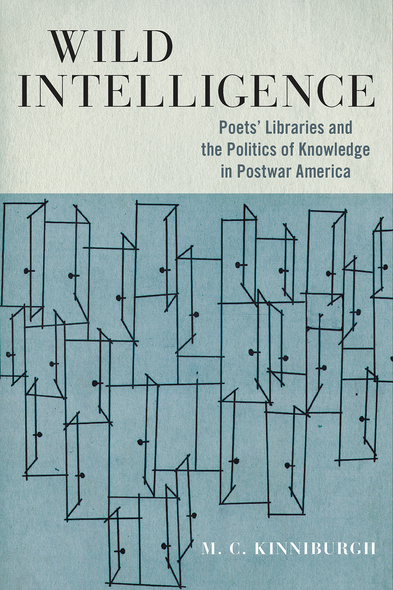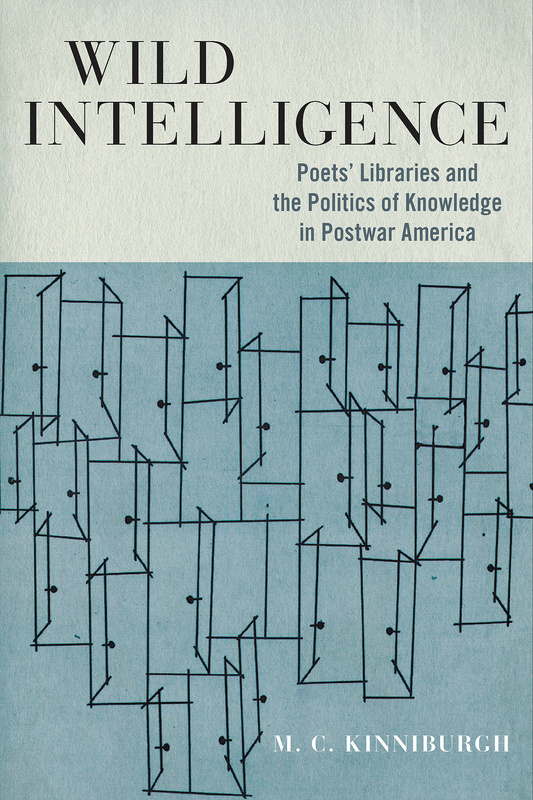
Wild Intelligence
Poets' Libraries and the Politics of Knowledge in Postwar America
Information science was a burgeoning field in the early years of the Cold War, and while public and academic libraries acted as significant sites for the information boom, it is unsurprising that McCarthyism and censorship would shape what they granted readers access to and acquired. Wild Intelligence traces a different history of information management, examining the privately assembled collections of poets and their knowledge-building practices at midcentury.
Taking up case studies of four poets who began writing during the 1950s and 1960s, including Charles Olson (1910–1970), Diane di Prima (1934–2020), Gerrit Lansing (1928–2018), and Audre Lorde (1934–1992), M. C. Kinniburgh shows that the postwar American poet’s library should not just be understood according to individual books within their collection but rather as an archival resource that reveals how poets managed knowledge in a growing era of information overload. Exploring traditions and systems that had been overlooked, buried, occulted, or censored, these poets sought to recover a sense of history and chart a way forward.
‘It is abundantly clear that the most significant threat to a library’s existence, as with each poet’s work, is that it will cease to be read. Kinniburgh makes every effort to ensure that these libraries are among 'what is saved'.’—Ethan Heicher, Textual Cultures
‘Kinniburgh’s intriguing, reader-friendly take looks at the libraries of four poets: Charles Olson, Audre Lorde, Diane di Prima, and Gerrit Lansing, expanding the conversation around current approaches to archival practice. Her work opens up fresh, incisive lines for inquiry.’—College Research Libraries
‘The four case studies in Wild Intelligence document unique encounters between the hardening of disciplinary categories in the postwar university system and increasing access to books, particularly among poets immersed in the world of independent booksellers, small press publication, and mimeo revolution.’—Libbie Rifkin, coeditor of Among Friends: Engendering the Social Site of Poetry
‘This new book is smart, interesting, and engaging. Kinniburgh is both well informed and passionate about her topics, and able to weave together perspectives and concerns from a variety of different fields.’—James Maynard, author of Robert Duncan and the Pragmatist Sublime
M. C. KINNIBURGH, who completed a PhD at the Graduate Center, CUNY, is rare books and archives associate for Granary Books.





